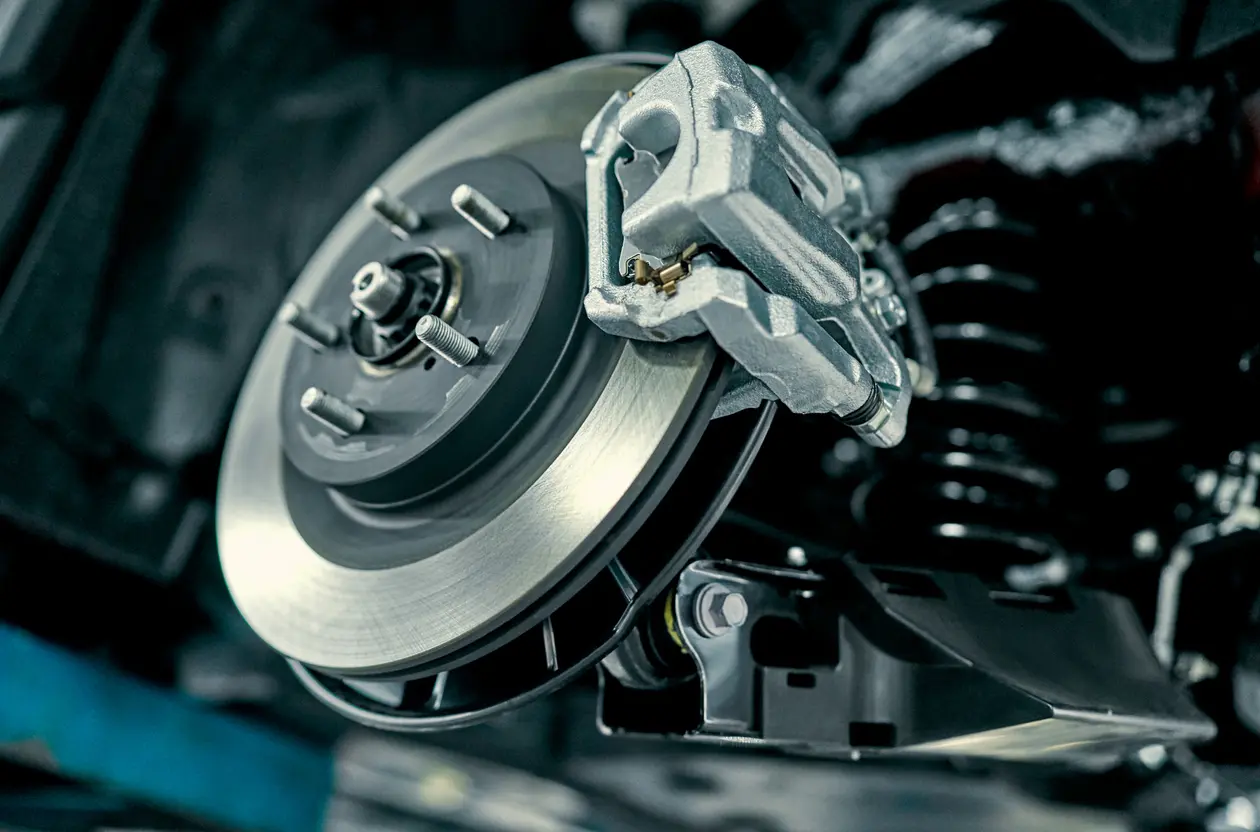EN 16207 Low Temperature Performance Testing of Brake Blocks
The European standard EN 16207 specifies a method for determining the low temperature performance of brake blocks used in railway and transportation systems. This testing is critical to ensuring that brake blocks perform reliably under cold conditions, which can vary significantly depending on geographical location and operational requirements.
Brake block materials are designed to withstand high temperatures during braking but must also retain their structural integrity and effectiveness at low temperatures. The standard mandates specific test conditions to evaluate this performance, including the following:
- Temperature range from -40°C to 150°C
- Specimen preparation involving curing brake blocks under controlled conditions
- Testing brake block samples using a standardized friction machine
- Measurement of braking efficiency and thermal stability
The testing process is designed to simulate real-world operating conditions, ensuring that the materials used in railway brake systems can handle extreme temperature variations without compromising safety or performance. This standard applies to various types of railway vehicles and transportation systems where low-temperature environments are a concern.
By adhering to EN 16207, manufacturers and suppliers can ensure compliance with international regulations and enhance the reliability of their products in diverse operational settings. The test results provide valuable insights into material properties and performance, guiding continuous improvement efforts for brake block design and manufacturing processes.
The importance of this testing cannot be overstated, especially given the increasing demand for sustainable transportation solutions that are both efficient and environmentally friendly. Ensuring robust brake systems is crucial in maintaining safety standards across all modes of transport.
Why It Matters
Ensuring the low temperature performance of brake blocks is essential to maintaining railway and transportation safety, particularly in regions with cold climates. The ability to brake effectively under freezing conditions can significantly reduce the risk of accidents and improve overall operational reliability.
The standard EN 16207 addresses several critical aspects that impact both passenger safety and operational efficiency:
- Reduced Risk of Accidents: In cold climates, ice and snow on tracks can lead to reduced friction between the wheels and the track. Ensuring brake blocks perform well at low temperatures minimizes this risk.
- Increased Operational Efficiency: Reliable braking ensures that trains can operate safely even in extreme weather conditions, reducing downtime and maintenance costs.
- Promotes Sustainability: By improving safety and efficiency, EN 16207-compliant brake systems contribute to the overall sustainability of railway transportation by minimizing fuel consumption and emissions.
The standard also plays a vital role in promoting global standards for quality and reliability. Compliance with such international regulations helps manufacturers compete effectively in a global market while ensuring that their products meet stringent safety requirements.
Eurolab Advantages
Eurolab offers comprehensive testing services tailored to the demands of EN 16207, providing clients with reliable and accurate results. Our state-of-the-art facilities and experienced technical staff ensure that every test is conducted under strict adherence to international standards.
- Accurate Testing Equipment: We use high-quality equipment calibrated to meet the precision requirements of EN 16207, ensuring consistent and repeatable results.
- Experienced Technicians: Our team comprises experts with deep knowledge of railway brake systems and testing methodologies. They provide valuable insights into material performance and potential improvements.
- Comprehensive Reporting: Clients receive detailed reports that include not only the test results but also recommendations for optimizing product design and manufacturing processes.
- Global Recognition: Eurolab’s compliance with international standards ensures that our testing services are recognized globally, providing a competitive edge for clients in international markets.
Eurolab’s commitment to quality and innovation has made us a trusted partner for leading manufacturers and suppliers of railway brake systems. We continuously invest in new technologies and methodologies to stay at the forefront of industry developments.





